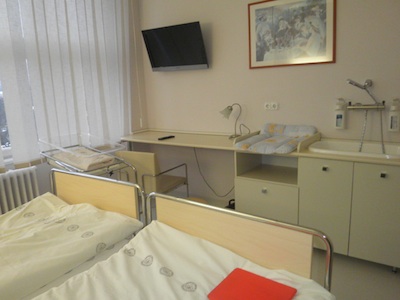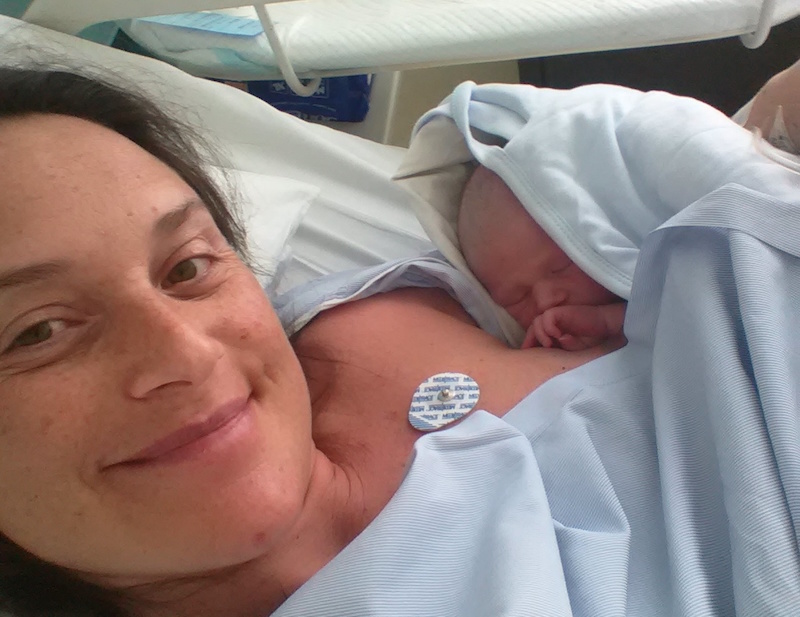
Mociexpat shares her experience of being pregnant in Budapest.
Being pregnant can involve a whole spectrum of emotions: it can be exciting, complicated, painful, uneasy, difficult, emotionally upsetting, it can scare or calm, it can be all of this or the opposite. The truth is it is different for each one of us, and even for the same woman pregnancies can vary. Besides all this uncertainty, because no one knows what is going to really happen during pregnancy, things become more complicated when you are pregnant abroad, in a country which is not yours and where, even if you have been living there a long time, you have to discover the whole world of maternity (in the widest sense).
Luckily my first pregnancy was wonderful.
With no problems whatsoever; I enjoyed (almost) every second of it, and I felt so well that I would have happily continued to be pregnant for another eight months. Despite the fact that I had been living in Budapest for two years when I got pregnant, finding all the information I needed, easily accessible to local women, was a bit difficult. To be honest, I found it more of a challenge to discover where to buy baby stuff than to find doctors and hospitals because, luckily, my medical centre offered a very good prenatal course which gave me all the information I needed (and that, before the course, I had no idea existed)[1]. But let’s take one step at a time.
This article not only aims at recounting the experience of my pregnancy and my baby’s birth in Budapest, but also at providing some leads about where to look for the information you might need in case one day you find yourself pregnant in this beautiful city.
My experience was positive in (almost) every aspect.
I had excellent prenatal care in a private medical centre[2] (I know that public medical service is also good, but it was not for me). There are several options and most clinics and private medical centres offer prenatal plans at a price which turns out to be lower than what you’d pay by getting all the visits and tests required by Hungarian medical protocol.
I liked my doctor a lot.
…though we parted on less happy terms, for administrative reasons… He was calm and relaxed, like me. In an easy pregnancy like mine, I felt he was the perfect complement. Had my pregnancy been complicated, he would maybe not have been the perfect match. I know women who did not like his style at all. But as in everything, there are doctors for all tastes and who speak English and other languages[3].
When choosing a doctor.
Something to keep in mind – in Budapest like anywhere else in the world, I guess – is his position in relation to the different options for giving birth. What he thinks about caesareans, how much he supports natural birth, breastfeeding, letting you hold the baby immediately after delivery, the use (or not) of an epidural, eating or not during labour, if he wants you to walk around or to lie the whole time in a bed, the need for an episiotomy, etc. I did a “Birth Plan” and gave it to my doctor. I told him what I wanted and he told me what he could promise, what he would try to respect and what he did not believe possible at all. In fact I had – once more – the delivery I wanted, even when circumstances were not the most favourable from a physical point of view.
Based on what I had heard and on my prenatal classes.
I got the impression that the Hungarian system is rather conservative (both doctors and, consequently, hospitals) caesarean costs are very high (especially privately, though prices do not vary much between caesareans and natural birth, which is different from what happens in other countries, or at least in Peru, where I am from), and this is one of the factors pregnant women take into account when they have to chose where and with whom to give birth. For this reason, it is important to check which clinics or private hospitals favour one or the other, and know the statistics of both types of delivery in each.
My case, for instance, was a little uncommon.
I gave birth in the private Maternity ward[4] of a public hospital; I chose it because it was close to my home and because the doctor who would take care of me there was on the same wavelength as me as far as we wanted things to turn out…apart from some iron shots that he gave me during the last days of my pregnancy…but OK, you can’t have everything in this life! Unfortunately the rate of caesarean sections in this hospital was one of the highest in Budapest, around 70%! I am totally pro natural delivery, and I trusted my doctor who told me he would do his best to avoid a caesarean and unnecessary medical interventions. When the day arrived, I had the desired natural birth even if everything pointed at this not happening (and despite the fact that the operating theatre was perfectly ready when they started inducing the delivery). I almost became the hero of the hospital, nobody could believe I had given birth naturally, and everybody came and congratulated me!
Other important factor to consider.
How important it is to give birth with the doctor who took care of you during pregnancy. This can make you feel freer to choose a doctor without worrying about the hospital. In Latin America – at least in my experience- women want to give birth with their own doctor. On the other hand, in Europe, with a public medical system which works effectively, this is not a priority, you give birth with the doctor who is available on the day and that’s it.
 For me it was not important that my doctor delivered my baby. On week 38 I looked for a doctor for the birth (who worked in the clinic I had chosen) and everything went perfectly. My philosophy (obviously supported by science) was and is that if you have no problems during pregnancy, delivery should go smoothly and in the end doctors usually arrive the moment when the child appears, and to me it did not matter who would welcome my daughter on this earth.
For me it was not important that my doctor delivered my baby. On week 38 I looked for a doctor for the birth (who worked in the clinic I had chosen) and everything went perfectly. My philosophy (obviously supported by science) was and is that if you have no problems during pregnancy, delivery should go smoothly and in the end doctors usually arrive the moment when the child appears, and to me it did not matter who would welcome my daughter on this earth.
Doula.
Another thing that helped me a lot was to have a doula. She was actually my translator with the medical staff during delivery. My doctor and the nurse spoke basic English, and their answers to my questions were always short and vague. Thanks to my doula, I was able to understand everything, and even spare myself the episiotomy! Besides the help of the language, the services of the doula were very valuable. She wiped me with warm cloths scented with relaxing oils during contractions and she put candles in the room to create a warmer atmosphere (for a moment I thought the doctor would kick us out for turning off the lights and lighting candles, but no, he liked it!). Her emotional support was also important. She held me back when I needed it and calmed me when I panicked at the idea of meeting my daughter and not falling immediately in love with her[5].
As far as medical protocol goes.
Hungary is pretty comprehensive. Talking and comparing with friends from different countries, I discovered that each country evaluates and gives importance to different things. For instance, in Italy, the issue of toxoplasmosis is of prime importance. Once a friend of my husband’s almost had a heart attack when she saw me eating a sandwich with uncooked ham and asked me about toxoplasmosis; I actually had not thought about it, and neither had my doctor. In Italy, if you have not developed the antibody, they strongly discourage you from eating raw meat; in Hungary they do the test but don’t give you any recommendations (I had the antibody). In Peru, they tell you to be careful about where things come from and nothing more (and they don’t prohibit ceviche, luckily). Other differences in tests are, for instance the cytomegalovirus test, which is not done Peru (and neither in Spain, nor in most countries), but is done here. And they take it rather seriously. There are some tests that are mandatory: you don’t need to be scared but should know what to expect to avoid surprises (or to ask for any particular test you would like to have).
In the end.
As always, if any of you need more information on any of the things I have mentioned (or left out), don’t hesitate to contact me. As I said, my experience of becoming a mother in Budapest was very good and I would tell any future mother that despite the first difficulties in locating what you really want, you can find everything (and I’d be glad to help you in this). This was my case and after forty weeks and five days of wonderful waiting and a delivery which was positively unforgettable, my daughter arrived to change my life.
And I will tell you how it goes now, that the second one is on its way!*
*Supposing we’ll still be here when he/she arrives, since in this expat life, you never know. I will tell you how it goes wherever it be!
Some info.
[1] The prenatal course I took, with that specific person, is no longer available because the person left, BUT she keeps on giving the course on Skype and she has a video version and a book titles “Giving Birth in Hungary”. You can get all the information here: www.RekaMorvay.com
[3] Here you find a list of gynecologists with comments https://docs.google.com/spreadsheet/pub?key=0AtaYckZy3eUFdE5pSnFNNWJJUkQydm84aFpVaDRNRFE&output=html. The list has been prepared by a group of mothers called www.BudapestMoms.com which has a Google Group that is an excellent source of information for ALL. (https://www.budapest-moms.com/forum2/)
[5] My doula was the same person that gave me the prenatal course, and she does no longer live in Budapest, but here is a complete list of doulas, midwives, etc. https://docs.google.com/spreadsheet/pub?key=0AtaYckZy3eUFdDFjSENmVURiTzgwQ2VEV2tLaktJakE&output=html
Moraima Ferradas Reyes (Mociexpat)
Budapest, Hungary
January 2015
Photo credit ©Mociexpat




